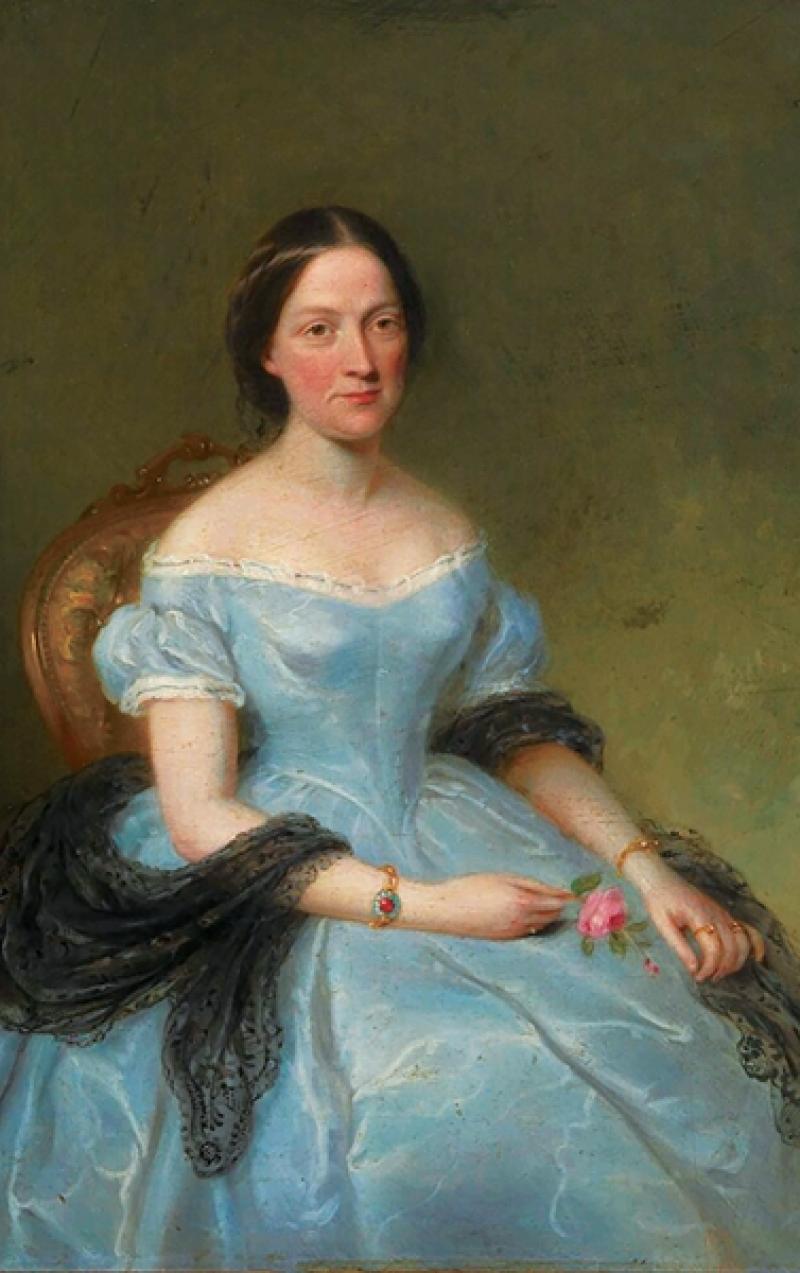Sole survivor
By: No Author Indicated
BUZZ NOTE: This is an article about literature and prescience. Comments about current politics, finger-pointing and blame will be deleted.

Sole survivor

English novelist, Mary Shelley.[Photo provided to China Daily]
Mary Shelley's little-known 1826 novel The Last Man , concerning a 21st-century plague, couldn't be more prescient.
"Many of those who remained secluded themselves; some had laid up stores which should prevent the necessity of leaving their homes-some deserted wife and child, and imagined that they secured their safety in utter solitude. Such had been one man's plan, and he was discovered dead and half-devoured by insects, in a house many miles from any other, with piles of food laid up in useless superfluity. Others made long journeys to unite themselves to those they loved, and arrived to find them dead."
Mary Wollstonecraft Shelley is principally known for two reasons: She was the wife of the poet Percy Bysshe Shelley and she was the author of the 1818 novel Frankenstein ; or, The Modern Prometheus . The fame she attained for the latter far surpassed the former. However, little known to many readers today, she wrote at least five other books, novellas, dramas and short stories, along with travel books and biographies.
In the wake of the current global pandemic, her novel The Last Man merits swift reappraisal. Published in 1826, it's a shockingly relevant postapocalyptic science-fiction tale that tells the story of a 21st-century plague and its solitary survivor. He's Lionel Verney, living in 2073 and, by the novel's end, 2100.
Largely an autobiographical figure for Mary Shelley, Lionel becomes the last man alive on Earth and the story is told through him. After a series of travails across three chapters, he resolves to live the rest of his life as a wanderer of the vacant continents of Europe and Africa, befriending a sheepdog along the way.
Shelley had been forbidden from publishing a biography of her husband during her life by her father-in-law, so she memorialized him in The Last Man in the utopian figure of Adrian, Earl of Windsor, who befriends Lionel and leads his followers in search of natural paradise, but dies when his boat sinks in a storm. The character of Lord Raymond, who leaves England to fight for the Greeks and dies in Constantinople, is based on Lord Byron.
Declared one reviewer on the book's launch: "The offspring of a diseased imagination and of a most polluted taste." Others derided the work as being "sickening" and full of "stupid cruelties". Shelley called it one of her favorites. Contemporary novelist Muriel Spark wrote that Shelley "created an entirely new genre, compounded... of the domestic romance, the Gothic extravaganza and the sociological novel."
While the plague in The Last Man might be metaphorical-the end of an empire, the Romantic traditions and humanism-the novel contains much scientific exactitude concerning the development of smallpox vaccine and 19th-century theories about the nature of contagion. Concluding with the picture of Earth's solitary inhabitant, Shelley infers that the condition of the individual is essentially isolated and tragic. "Yes, I may well describe that solitary being's feelings, feeling myself the last relic of a beloved race, my companions extinct before me," she wrote in her journal in 1824. Prescient, indeed.






Although I knew Mary Shelley was the author of the first Frankenstein novel, I had never put it together that she was the wife of the poet Percy Bysshe Shelley.
That is sad. Kind of shows where women's rights have come.
I never actually read any of her stuff but she has been immortalized just by one character.
The old black and white Frankenstein movie gave me the creeps as a little kid.
Interesting and timely about her book about plague.
Odd to think her work is coming up on 200 years.
I have read Frankenstein many times and own a very nice volume. I have not read The Last Man. I will have to check it out on my Kindle (since the library is closed). If it intrigues me as the other novel I will have to order a nice copy.
In a discussion in a "woman's study" class I was presented with a different way to look at Frankenstein. It was suggested that Shelley wrote the novel as a fight back against women's positions in that time era. I think it will be interesting how this other novel works into how she and women in general were treated.
I always wanted to read the book. Now though I have to wear reading glasses and it gets on my nerves.
Every time I have read a book that had a movie adaptation, the book was always better.
I find that as well.
There are times, however, that if you see the movie before you read the book, you will think the movie is better, although not that often for two reasons - first, because the book can be more detailed, and the story more complete than a 90 minute movie could possibly be (example: Frank Herbert's Dune), but secondly, because when you read a book you conjure up images in your mind, and often they are far more interesting and fulfilling than a movie can compete with.
For anyone who may be interested, Mary Shelley's novels Frankenstein and The Last Man are available at Project Gutenberg.
Books by Mary Wollstonecraft Shelley - Project Gutenberg
Project Gutenberg does not require an user account or login to download material. The books may also be read online, if that is preferable.
Another open resource that allows downloads without requiring an user account is the Internet Archive. The quality of material on the Internet Archive is more variable than on Project Gutenberg.
Books by Mary Wollstonecraft Shelley - Internet Archive
Thank you. I was just going to look for it on Project Gutenberg (a site I discovered a few years ago).